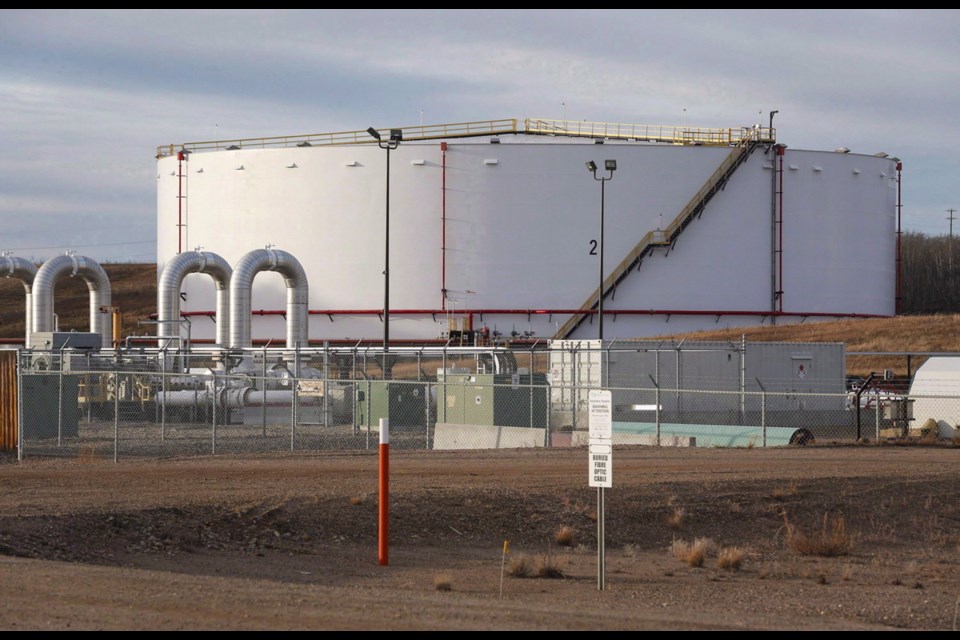
Re: “Cenovus CEO says heavy oil price discount taking ‘extraordinary’ toll on economy,” Feb. 15.
Alberta oil producer Cenovus Inc’s. CEO, Alex Pourbaix, seems unable to do simple math. In the article, it was reported that “he estimated a $10 US improvement in the difference on Alberta’s overall output of 3.2 million barrels per day of heavy oil would result in $50 million Cdn a day spilling back into the provincial economy.”
Pourbaix said: “This issue of the spread between Canadian heavy and WTI [West Texas Intermediate] is having an extraordinary impact on the Canadian economy and the Alberta economy, not just upstream producers.”
First the math. The U.S. to Canadian dollar exchange rate is 1.25. That means a $10 US increase in the price of Alberta’s diluted bitumen would be $12.50 Cdn. Multiply that by 3.2 million barrels a day and the result is $40 million Cdn a day. The error is not trivial — he’s off by 25 per cent. But even $40 million Cdn a day makes no sense.
Pourbaix exhibits a lack of understanding about the level of production of heavy oil in Alberta and where it goes. Alberta doesn’t produce 3.2 million barrels a day of heavy oil. According to the Alberta Energy Regulator, in 2017, Alberta produced 2.8 million barrels a day of bitumen with about 47 per cent extracted from mining and the rest from in-situ activities. This is important because most mined bitumen goes directly into upgraders run by Pourbaix’s colleagues at Syncrude, Suncor, Shell and Canadian Natural Resources Limited.
These facilities add value to low-quality bitumen when they process it into synthetic crude oil. Guess what: Synthetic crude is selling at a premium to WTI, not a discount. Alberta’s upgrading companies make a healthy return when they send their bitumen into their facilities, process it and sell a higher-valued product. They also hire thousands of workers to run the facilities and keep them maintained.
This is why the Alberta Federation of Labour, which represents 170,000 workers, argued so strongly against Trans Mountain’s expansion at the National Energy Board hearing. Alberta’s workers don’t want future upgrading jobs shipped to foreign markets along with raw bitumen. They are smart enough to know that real economic wealth and more jobs come from value added, not raw resource export.
If a transfer of wealth to the U.S. is going on, it is because Canadian oil producers invest in refineries in the U.S. instead of here at home, and they benefit when they sell deeply discounted diluted bitumen into their own refineries.
This is what Cenovus does when it supplies its facilities in Wood River, Illinois, and Borger, Texas, owned in a joint venture with Phillips 66. Suncor, too, when it sells into its Colorado refinery. Then there is Husky, which supplies the refinery in Ohio it owns in partnership with BP. We can’t forget Imperial and its parent ExxonMobil when they deliver crude from their joint oilsands venture in Alberta to ExxonMobil’s U.S. facilities.
When we take away the volume of bitumen processed through upgrading — because it is now light oil, not heavy — non-upgraded bitumen falls to 1.6 million barrels a day. This is half the figure Pourbaix used.
We still need to address the notion of a heavy-oil discount. There is a discount for diluted bitumen because bitumen is an ultra-heavy hydrocarbon full of complex molecules that has always fetched lower relative prices than light oil. And always will.
Bitumen costs more to upgrade and refine and more to transport; that’s why there is a discount. The expected natural discount for Western Canadian Select — a bitumen blend Cenovus produces — is typically $15 to $20 per barrel.
Where was Pourbaix all last year when Western Canadian Select was selling at a premium over its expected discount? During 2017, Western Canadian Select averaged $11.98 US below WTI — about a $5 to $10 US enhancement to its expected differential.
The price discount for diluted bitumen has increased recently only because TransCanada’s Keystone pipeline, which delivers mostly heavy oil to the Gulf Coast, sprang a leak in South Dakota on Nov. 16. The line was shut down, taking almost 600,000 barrels a day of export capacity offline. When the pipeline restarted 12 days later, it did so under restricted operating pressure. This means about 120,000 barrels a day of pipeline export capacity has been removed.
Heavy oil’s natural price discount widened recently because pipeline operators can’t keep the pipelines they have safe. If there is a loss to the Alberta economy, this would be the reason — pipeline failure.
Robyn Allan is an independent economist and was a qualified expert intervener at the Trans Mountain Expansion Project review.



